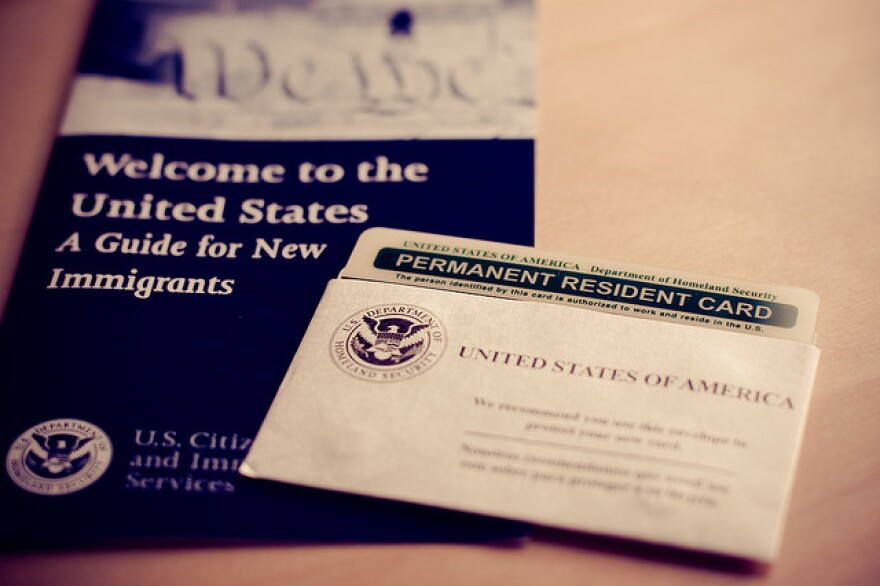Immigrant advocates are cheering a change in federal policy. New guidelines from the Department of Homeland Security offer a small break to people who entered the country illegally and now have a spouse or child who is a US citizen.
For these immigrants, the path to legal residency requires a trip back to their home country for a visa. But once there, the process can often drag on and separate families for months or even years.
The new DHS guidelines, which take effect March 4, allow eligible immigrants to apply for waivers to shorten the wait. Officials estimate the time will be reduced to "a matter of weeks." Immigrants will also be able to obtain the waiver before leaving the US rather than the current process that requires them to to apply from abroad.
Seattle immigration attorney Robert Pauw sees this as a positive development, but with limited reach. "Basically what it does is waive one ground of inadmissibility or one reason why a person might be excluded from coming into the United States," Pauw said. "It’s helpful, but really for a relatively limited class of individuals.”
Under federal law, a person who illegally enters the US is banned from coming back for up to 10 years. Pauw said this specific waiver removes that ban but immigrants also face other similar barriers that can delay or block their return back to the US, such as if their spouse is a legal resident rather than a citizen. Pauw said he'd like to see Homeland Security allow waivers in those cases as well.
Before this policy change, Pauw says he advised clients to not leave the country and face the uncertainty. He expects he’ll give a green light now — at least to those undocumented immigrants with an airtight case.



